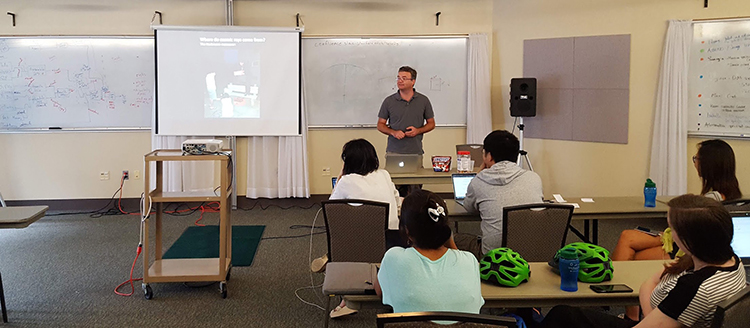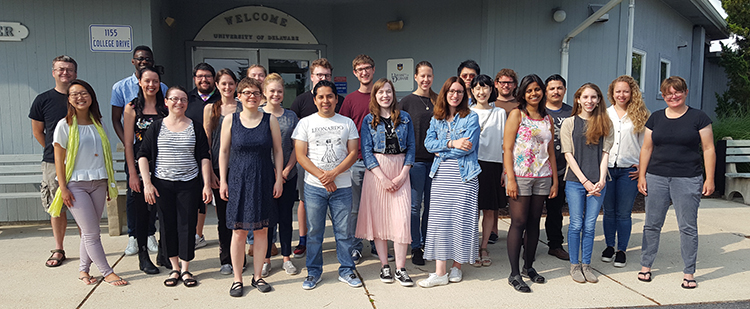Fermi Summer School 2022

Cape Henlopen State Park near Lewes, Delaware
An Era of Multimessenger and Time Domain Astrophysics
After a 2-year hiatus for in-person events due to COVID-19, the Fermi mission team and our partners at the University of Delaware are excited to bring back the in-person format for the Fermi Summer School. This year the Fermi Summer School will explore gamma-ray observations in multimessenger and time domain astrophysics. This is an exciting era of rich data sets across the spectrum and new observations available in the coming years. We will learn about the underlying physics that drives extreme phenomena along with the modeling and observational techniques used to study them throughout the Universe. Gamma-ray emission detected by the Fermi instruments along with observations from different wavelengths and of different messengers bring insights into neutron stars, black holes and the powerful plasma jets they generate, as well as stellar explosions and binary systems. The energy released in these extreme environments accelerates particles to energies that challenge the understanding of astrophysical mechanisms. The traces of energetic activity linger in the diffuse gamma rays present throughout our Galaxy and beyond it.
The Fermi Summer School emphasizes the analysis of data from the Fermi instruments through lectures and hands-on workshops. Students spend time working directly with experts in instrumentation, analysis, theory and modeling to develop and extend their own research projects. Topics cover much of the gamma-ray band ranging from keV-MeV transients seen with Fermi's GBM to the highest energies observed by the LAT and the very high energies observed by ground-based gamma-ray telescopes. This year's school will be held at the University of Delaware Conference Center in Lewes, Delaware, from May 31 to June 10, 2022.
Find information about last year's virtual school at: https://confluence.slac.stanford.edu/display/LSP/Fermi+Summer+School+2021
Material will be aimed at graduate students and post-doctoral researchers. Topics will include particle acceleration and gamma-ray production mechanisms; space-based and ground-based gamma-ray instrumentation; spectral, spatial, and time-based analysis of gamma-ray data; modeling and interpretation of gamma-ray data; and astrophysical source classes such as AGN, GRBs, Galactic pulsars and binary systems, supernova remnants, and pulsar wind nebulae as well as searches for dark matter and new physics.

Jamie Holder lecturing at the Virden Center Facility in 2019
Important Dates
- Application Deadline: April 1, 2022
- School: May 31 to June 10, 2022
Program
Details will be announced soon. The formal program includes 10 days of lectures and hands-on sessions. One day is left free for excursions.
Application Information
- Deadline: April 1, 2022
- Applications received by the deadline will receive full consideration. Later applications will be considered if places are still available.
- Applicants requiring a US visa are strongly encouraged to apply as early as possible.
- The school will be subject to the University of Delaware COVID-19 guidelines for event attendees, which require proof of vaccination.
To apply, complete one of the provided templates and send to fermischool@bigbang.gsfc.nasa.gov.
Attendance Fee:
An attendance fee of $1100 USD covers lodging for the nights of Monday, May 30, through Thursday, June 9, and includes breakfast and lunch for 10 days. Payment details will be provided to accepted applicants. We have limited resources available to support attendees who do not have access to travel support.


